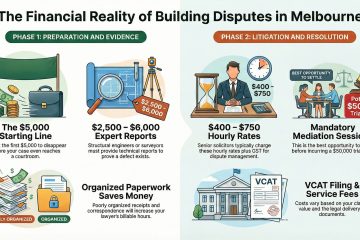
Attorneys tend to specialize in particular fields of law; for example, business attorneys specialize in dealing with contracts, employment issues and intellectual property law; family lawyers may concentrate their practice around family and domestic relations issues while other attorneys handle issues regarding accidents/injuries and criminal or civil rights litigation.
Find an attorney by consulting friends and associates, using online directories, and asking friends and associates. Some services even allow advanced searches that let you search by language and education level of lawyers.
Referrals
Referrals are one of the best ways to expand your law firm, as they’re more likely to convert than other leads due to coming from people who’ve heard amazing things about you and your firm. But without a plan in place for obtaining them, you could miss out on potential business.
Most communities offer bar associations that provide referral services for the public. These services connect people to lawyers who specialize in specific areas of law. Clients can use these referral services to navigate their legal system more easily and find an attorney best suited to meet their needs.
Many bar associations operate legal clinics that provide free legal aid to low-income individuals, including divorcing and custodial matters as well as helping navigate social service programs to access housing and healthcare benefits.
Make use of your friends and family for recommendations as well. If anyone in your network has used an attorney before, ask who they hired and their experience with them. Once this step is completed, gather a list of lawyers in your area before reviewing each one’s website; take special note of what type of law each lawyer practices as well as client testimonials.
Attentiveness to personal chemistry between yourself and the attorney you select is also crucial; after all, you will spend significant time together. Furthermore, pay attention to pricing plans such as hourly or flat fee pricing options before making your selection.
Referring clients should adhere to ethical rules regarding attorney-client relationships. For instance, when making referrals it is imperative that all potential conflicts are managed properly – for example contacting another lawyer directly before their client contacts you directly could lead to malpractice and ethics complaints against both of you.
Expanding your network of potential clients is also possible by attending local events and joining local discussion groups. Attending local events provides you with an opportunity to meet other lawyers as well as community leaders that could prove to be invaluable for your law firm.
Directories
If you’re searching for an attorney, directories are an ideal starting point. These websites allow users to search by name, location, practice area and more – as well as providing detailed profiles that include education and experience information – plus some even let clients view testimonials left by previous clients!
Internet-based directories are an essential tool for attorney marketing, yet not all directories can be considered equal. You should be able to distinguish good from bad directories by comparing domain authority, page rank and backlink counts among them as well as looking at content organization and ease of navigation on each site you consider for attorney listings.
Referrals from family, friends, and coworkers are another effective means for finding attorneys. A personal recommendation can help avoid scams while finding the ideal attorney to meet your specific needs – it may even prove more cost effective than advertising in newspapers or magazines!
Numerous legal directories provide free listings for lawyers and law firms. Some, like Avvo, feature ratings and reviews for attorneys along with a Q&A section where clients can post legal queries. LawGuru also features nationwide directories that highlight lawyers meeting high ethical standards with its Lead Counsel Verified symbol.
Legal directories are an invaluable resource for both potential clients and other law firms that need to refer cases. Listing attorneys by specialty and location makes it easier for other firms to find them; plus these websites provide backlinks that help search engine optimization (SEO) efforts and help your ranking in Google.
Locating an attorney directory is key for law firms that want to compete online, yet selecting one from among all of the available directories may seem overwhelming. When making this choice, consider your budget and time commitment when creating the listing; compare prices across directories in order to identify which is the most cost-effective choice for your firm’s needs.
Online
Internet searches for attorneys are a valuable resource, but you must use caution when using them. Many sites that claim to rate attorneys use algorithms which may produce misleading results; in addition, some sites only feature positive reviews; also be wary of attorneys who do not include contact numbers and fee schedules on their websites.
When choosing an attorney, consider both your type and location when looking for one. For instance, if you are involved in a personal injury suit locally may be ideal; otherwise look online directories such as FindLaw to locate attorneys specializing in specific areas.
When looking for a business attorney, consulting professionals from other fields is often beneficial. Because they work closely with them, these experts tend to make informed judgments of lawyers. An accountant or insurance agent might recommend one who knows your industry. Another source is legal aid societies – these organizations typically provide free or low-cost legal advice to people facing legal problems.
Visit a law library as an additional way of searching for an attorney, where you’ll have free access to legal cases and documents – but be prepared to spend a considerable amount of time there; keep in mind that certain libraries only contain information on large firms that could cost more.
After creating your list of prospective attorneys, contact each one to arrange an appointment. Most will meet prospective clients for 30 minutes at no cost – during your consultation take note of their personality and experience; it’s essential to develop a rapport with your lawyer, so pick someone with whom it will be easy for you to communicate freely and befriend. Furthermore, inquire how soon each lawyer plans on responding to emails or phone calls from clients.
Social media
Social media is an efficient way to find legal help, yet some attorneys shy away from using it, fearing privacy concerns or defamation lawsuits. Yet in truth, social media marketing is one of the best ways to attract new clients – so create an integrated plan using different platforms and formats and share content you create in an appropriate place to build trust with potential clients.
Social networking sites like Facebook and Instagram present attorneys with an invaluable opportunity to reach new prospective clients. Attorneys can promote themselves on these platforms by creating a business page and publishing relevant articles; or joining online legal communities where professionals discuss current events. Facebook may be particularly cost-effective for law firms looking to reach large audiences quickly while LinkedIn allows lawyers to network with professionals and promote their services effectively.
An attorney should use LinkedIn to showcase information about their background and experience, link back to their website and list relevant publications. Attorneys should strive to post new content at least twice or five times every month demonstrating their expertise – this will set them apart from their competition.
An online presence is vital for law firms of any size or practice area, regardless of size. While some lawyers may be tempted to sign up for every social media platform available, it’s wiser to focus on those that bring the greatest return on investment. Furthermore, Google My Business accounts should also be created which are found within search results and work hand in hand with social media efforts.
Attorneys should use social media posts as an opportunity to keep clients up-to-date with recent legal news and updates that can assist them. A great way to do this would be adding video clips; these tend to be more engaging than text posts and add another level of engagement for followers. In addition, social media posts must remain professional and ethical.


